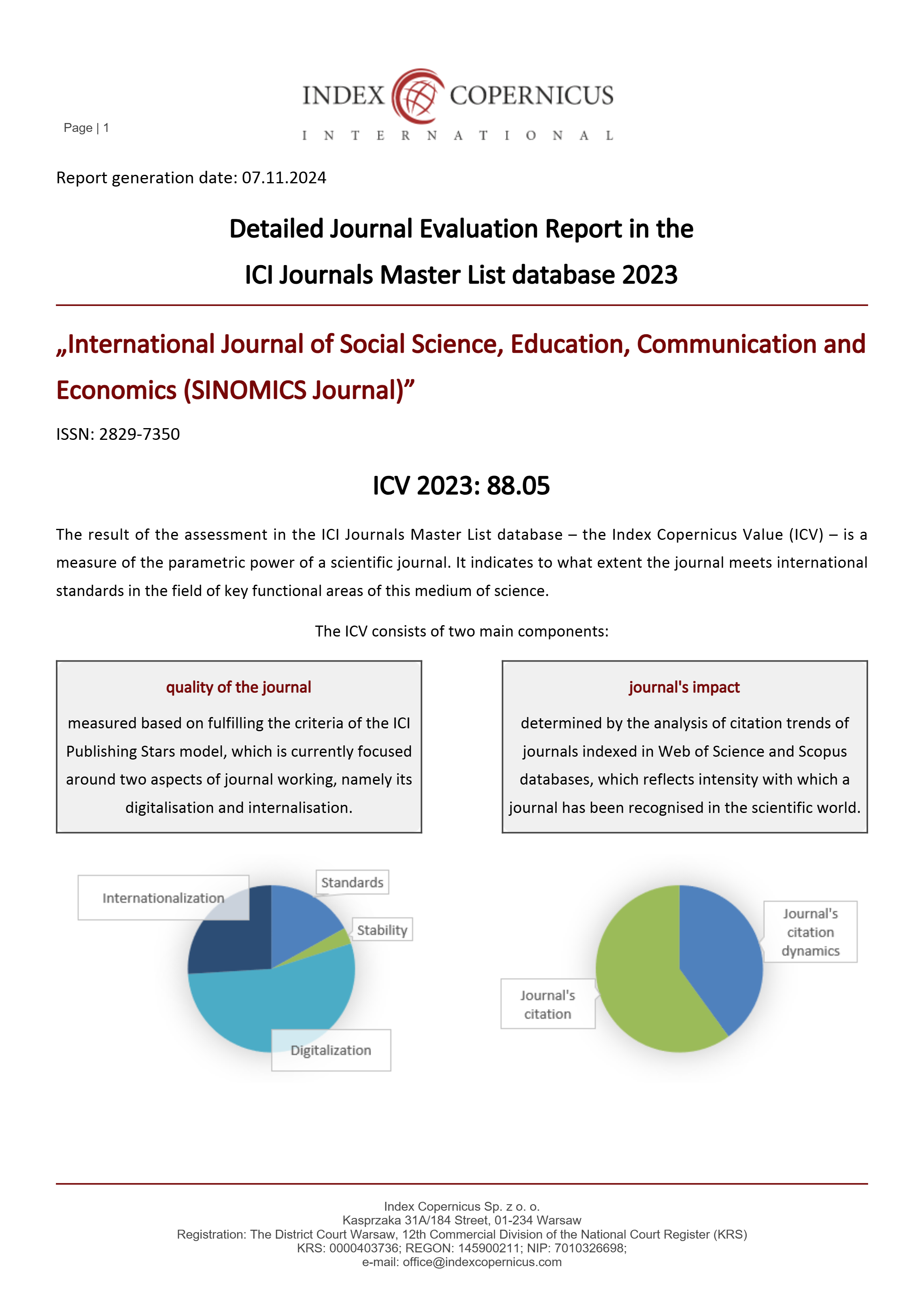The Relationship Between Overprotective Parenting and Independence with Adolescents' Self-Identity Status
Main Article Content
Nida Alifatun Sajidah
Yulia Insyirah
Lusi Handayani
This research aims to determine the relationship between overprotective parenting and independence and the self-identity status of teenagers at Muhammadiyah High School, Bantul, Yogyakarta. The subjects in this research were female students in grades 10 to 12 at SMA Muhammadiyah Bantul. This research uses 3 research variables, consisting of 2 independent variables and 1 dependent variable. The data collection method that will be used in this research is the Adolescent Self-Identity Status Scale, Overprotective Parenting Pattern Scale and Independence Scale. The data obtained in this research was analyzed using a multiple regression analysis technique with two predictors using the Statistical Product and Service Solution (SPSS) 16 For Windows computing system program. The results of this study indicate that there is a positive relationship between Overprotective Parenting and Independence with Adolescents' Self-Identity Status. The results of the analysis using regression analysis techniques resulting from the relationship between the three variables obtained R = 0.415 and R2 = 0.172 with a value of p = 0.000 (p <0.01). There is a very significant positive relationship between Overprotective Parenting Patterns and Adolescents' Self-Identity Status, with a correlation of r 0.283 and a significance level of 0.001 (p<0.01). There is a very significant positive relationship between independence and Self-Identity Status in adolescents, with a correlation of r 0.357 and a significance level of 0.000 (p<0.01). The conclusion in this research is that there is a very significant positive relationship between Overprotective Parenting and Independence with the Self-Identity Status of Adolescents at Muhammadiyah High School Bantul, Yogyakarta. Based on the first minor hypothesis, there is a very significant positive relationship between Overprotective Parenting Patterns and the self-identity status of Muhammadiyah Bantul High School students. Based on the second major hypothesis, there is a very significant positive relationship between independence and the self-identity status of Muhammadiyah Bantul High School students.
Ali, M. (2007). Ilmu Dan Pendidikan. Jakarta: PT. Imtima.
Drajat, Z. (1983). Kesehatan Mental. Jakarta: PT. Gunung Agung. Gunarsa, S. (1991). Psikologi Remaja. Jakarta: Gunung Mulia.
Gunarsa, S. (2007). Psikologi Remaja. Jakarta: Gunung Mulia.
John W. Santrock. (2003). Adolesence: Perkembangan Remaja.Edisi Keenam. Jakarta: Penerbit Erlangga.
John W. Santrock. (2008). Psikologi Pendidikan. Jakarta: Prenada Media Group.
Marcia, J.E. Matteson, D.R Orlofsky, J.L. Waterman, A.S. Archer, S.L. (1993) Ego Identity: Handbook for Psychogycal Research. New York. Springer- Verlag. 155.2/Mar/e kampus 2
Marshallina. (2012). Hubungan Pola Asuh Orangtua Dengan Identitas Diri Pada Remaja Akhir. Jakarta: Binus University
Papalia, D. E. & Olds, S. W. (2001). Human Development. USA: Mc Graw - Hill, Inc.
Purbasari, KD. (2016). Perbedaan Kemandirian Pada Remaja Yang Berstatus Sebagai Anak Tunggal Ditinjau Dari Presepsi Pola Asuh Orangtua. Jurnal Psikologi Pendidikan Dan Perkembangan. Vol. 5 No.1
Purwadi. (2004). Proses Pembentukan Identitas Diri Remaja. Humanitas: Indonesian Psychological Journal Vol.1.
Retnowati, Y. (2008). Pola Komunikasi Orangtu Tunggal Dalam Membentuk Kemandirian Anak (Kasus Di Kota Yogyakarta). Jurnal Ilmu Komunikasi. Vol. 6 No. 3
Sarwono, SW. (1989). Psikologi Remaja. Jakarta: Rajawali.
Sarwono, S. (2008). Psikologi Remaja Edisi Revisi. Jakarta: PT. Raja Grafindo Persada.
Yusuf, S. (2004). Psikologi Perkembangan Anak Dan Remaja. Bandung: PT. Remaja Rosdakarya Offset.
Yusuf, S. (2006). Psikologi Perkembangan Anak Dan Remaja. Bandung: Rosda.
Yusuf, S. (2005). Psikologi Perkembangan Anak Dan Remaja. Bandung. Remaja Rosdakarya.










